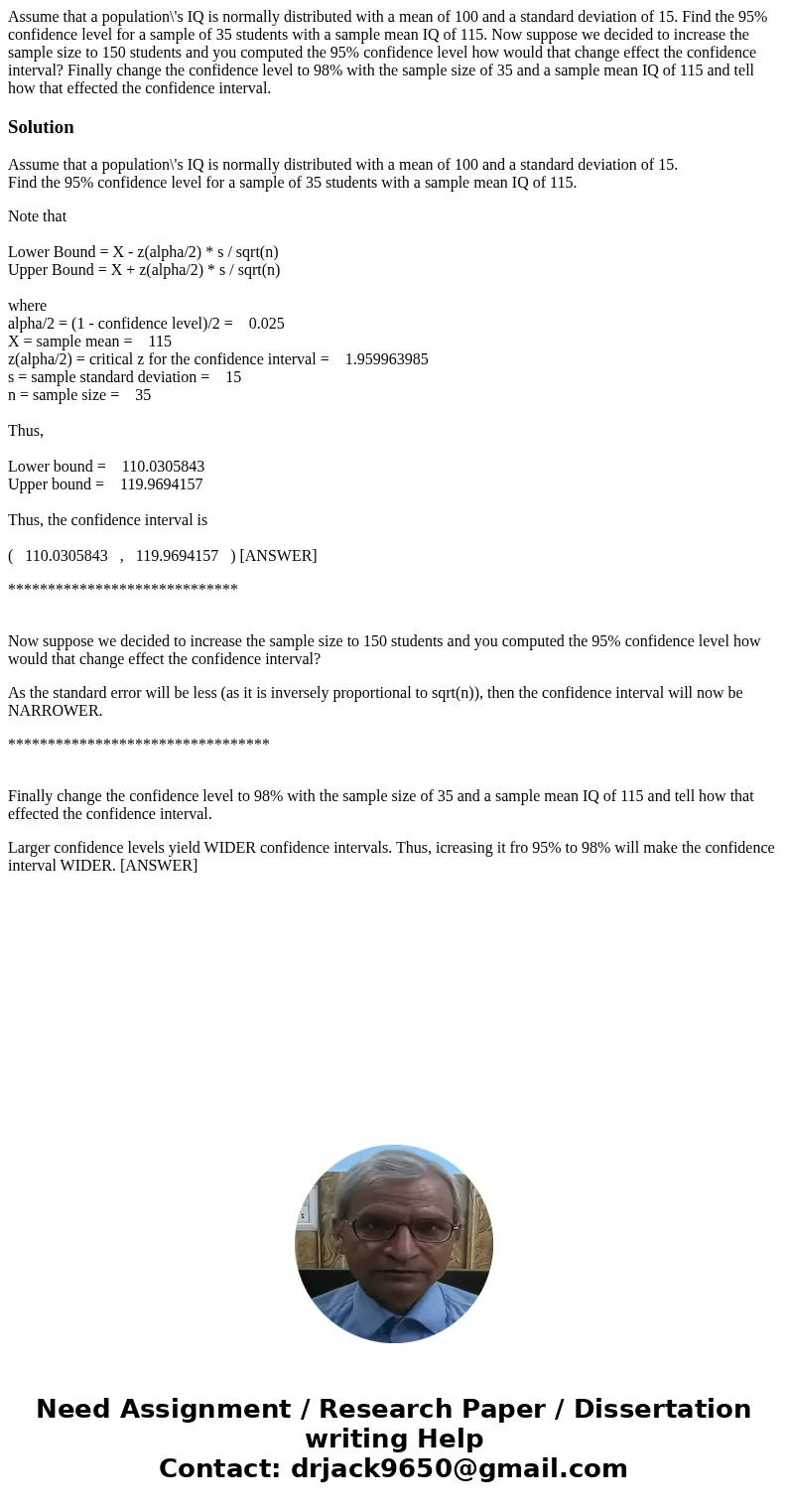Assume that a populations IQ is normally distributed with a
Assume that a population\'s IQ is normally distributed with a mean of 100 and a standard deviation of 15. Find the 95% confidence level for a sample of 35 students with a sample mean IQ of 115. Now suppose we decided to increase the sample size to 150 students and you computed the 95% confidence level how would that change effect the confidence interval? Finally change the confidence level to 98% with the sample size of 35 and a sample mean IQ of 115 and tell how that effected the confidence interval.
Solution
Assume that a population\'s IQ is normally distributed with a mean of 100 and a standard deviation of 15.
Find the 95% confidence level for a sample of 35 students with a sample mean IQ of 115.
Note that
Lower Bound = X - z(alpha/2) * s / sqrt(n)
Upper Bound = X + z(alpha/2) * s / sqrt(n)
where
alpha/2 = (1 - confidence level)/2 = 0.025
X = sample mean = 115
z(alpha/2) = critical z for the confidence interval = 1.959963985
s = sample standard deviation = 15
n = sample size = 35
Thus,
Lower bound = 110.0305843
Upper bound = 119.9694157
Thus, the confidence interval is
( 110.0305843 , 119.9694157 ) [ANSWER]
*****************************
Now suppose we decided to increase the sample size to 150 students and you computed the 95% confidence level how would that change effect the confidence interval?
As the standard error will be less (as it is inversely proportional to sqrt(n)), then the confidence interval will now be NARROWER.
*********************************
Finally change the confidence level to 98% with the sample size of 35 and a sample mean IQ of 115 and tell how that effected the confidence interval.
Larger confidence levels yield WIDER confidence intervals. Thus, icreasing it fro 95% to 98% will make the confidence interval WIDER. [ANSWER]

 Homework Sourse
Homework Sourse